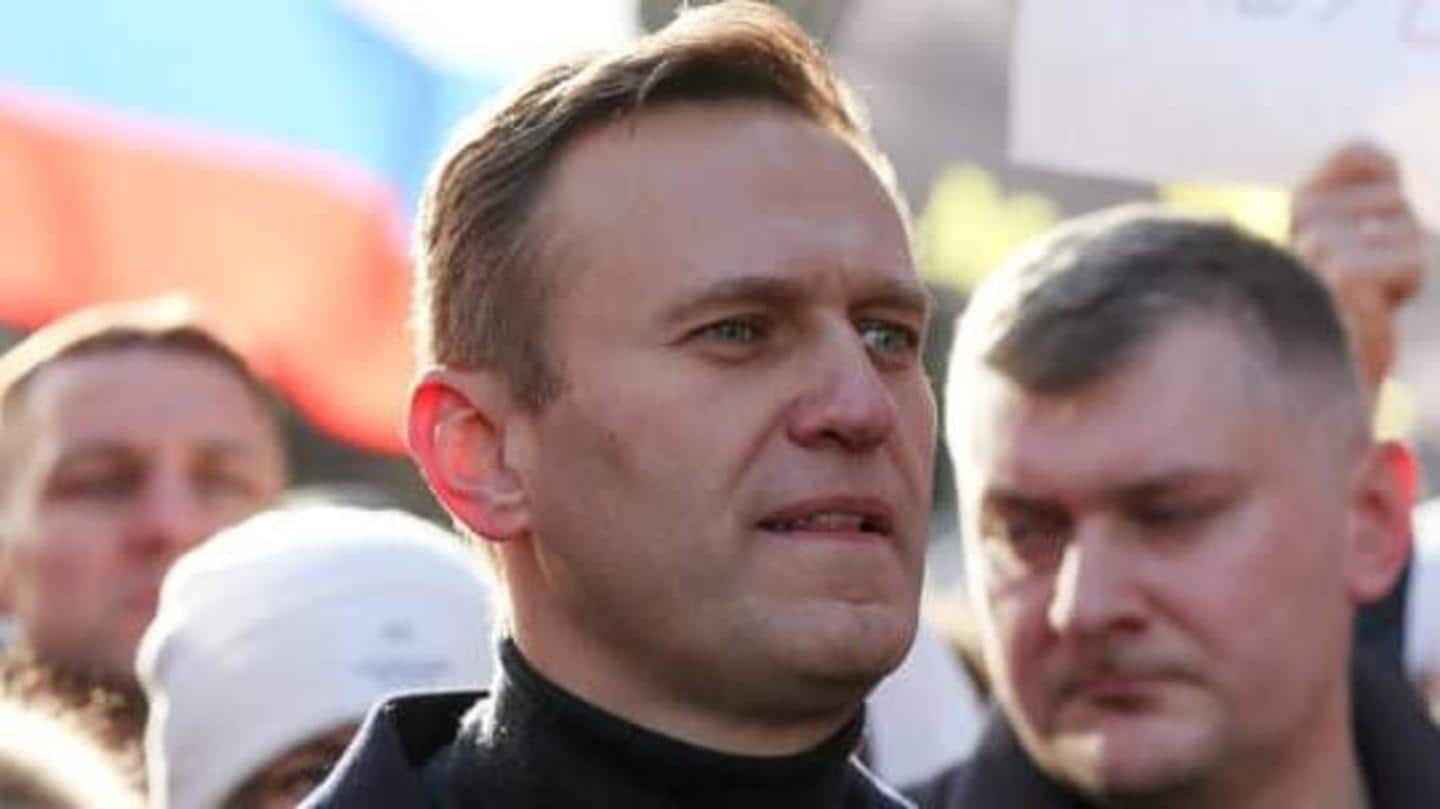
Russian Opposition leader detained after landing in Moscow
What's the story
Russian Opposition leader Alexei Navalny was arrested on Sunday at a Moscow airport as he tried to enter the country from Germany, where he had spent five months recovering from nerve agent poisoning that he blames on the Kremlin. Russia's prison service said, "He would be held in custody until a court rules on his case. No date for court appearance was immediately announced."
Information
Navalny violated parole terms from a 2014 sentence: Prison service
Navalny's detention at passport control in Moscow's Sheremetyevo Airport was widely expected because Russia's prison service said he had violated parole terms from a suspended sentence on a 2014 embezzlement conviction.
Elections
'I'm an innocent man,' Navalny said in Berlin
Navalny, 44, who is President Vladimir Putin's most prominent foe, brushed off concerns about the arrest as he boarded the plane in Berlin of his own free will. "It's impossible. I'm an innocent man," he said. The arrest raises tensions in Russia as it approaches national parliament elections this year, in which Navalny's organization is expected to actively try to defeat pro-Kremlin candidates.
Twitter Post
A real act of bravery: Human Rights Watch Executive Director
This is a real act of bravery for Alexei Navalny to return to Russia, given that government agents already tried to kill him once. But he understandably wants to be part of the pro-democracy movement in Russia, not a dissident in exile. https://t.co/TcsKI8qob9
— Kenneth Roth (@KenRoth) January 17, 2021
Criticism
US officials criticized the arrest
Meanwhile, US President-elect Joe Biden's pick for National Security Advisor Jake Sullivan called on Russian authorities to free Navalny. Outgoing US Secretary of State, Mike Pompeo, said, "The US strongly condemns the decision to arrest Navalny and called his detention the latest in a series of attempts to silence Navalny and other opposition figures and independent voices who are critical of Russian authorities."
Quote
At least 53 people arrested, including Navalny's supporters and journalists
OVD-Info, an organization dealing with law enforcement issues in Russia, said, "53 people were arrested, including Navalny's supporters and journalists, at Vnukovo, where the arrivals hall had been blocked off and prisoner transport vehicles were parked outside. There were at least three detentions at Sheremetyevo."
Details
Navalny was exposed to a Soviet-era Novichok nerve agent
To recall, Navalny fell into a coma while aboard a domestic flight from Siberia to Moscow on August 20 last year. He was transferred from a hospital in Siberia to a Berlin hospital two days later. Labs in Germany, France, and Sweden, and tests by the Organization for the Prohibition of Chemical Weapons, established that he was exposed to a Soviet-era Novichok nerve agent.
Information
Russian authorities insisted that doctors found no traces of poison
However, Russian authorities insisted that the doctors who treated Navalny in Siberia found no traces of poison and challenged German officials to provide proof of his poisoning. Russia refused to open a full-fledged criminal inquiry, citing a lack of evidence that Navalny was poisoned.
History
Navalny has been jailed repeatedly in connection with protests
Navalny has been a thorn in Kremlin's side for a decade, unusually durable in an opposition movement often demoralized by repressions. He has been jailed repeatedly in connection with protests and was twice convicted of financial misdeeds in cases that he said were politically motivated. Previously, he suffered significant eye damage when an assailant threw disinfectant into his face that many suspected was poison.